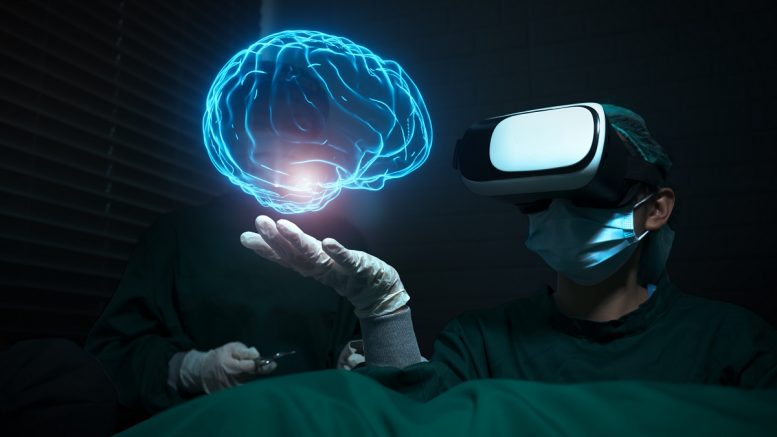Bill Gates wrote recently that he has seen only two tech demonstrations during his career that he considers to be truly ground-breaking. The first was that of the graphical user interface, the precursor to Windows and the second was generative AI in the form of ChatGPT.
Chat GPT was developed by a team under Gates’ mentorship, making him privy to some of the earliest efforts in generative AI. When he first came across the technology, it was exciting but clearly had some way to go. So he set the team a challenge: train the AI to pass an advanced biology exam that would require critical thinking, rather than merely regurgitating information. Remarkably, a challenge that Gates thought would take the team years to achieve, was accomplished in months.
Generative AI has the power to drive change at a speed and scale that boggles the human mind – even the most brilliant minds like Gates’. The question is: which are the problems that ChatGPT and other generative AI tools are best placed to solve? After all, passing an advanced biology exam is amazing, but doesn’t in itself bring a massive amount of benefit, other than potentially making human students feel a bit less smart.
And, just as importantly, what are the risks of using these technologies to upend conventional industry systems and processes?
Seismic shifts in healthcare
It’s notable that Gates singles out healthcare as one of the sectors most in need of AI. And I wholeheartedly agree.
One factor driving this need is the increasing complexity of healthcare – compared to 15 years ago we have a more in-depth and nuanced understanding of disease, and at the same time we have an ever-growing number of ways to treat these diseases. Clinical decision making is complicated and time-consuming, while in parallel, record workforce shortages combined with an aging population and the ongoing Covid backlog, amongst other factors, mean that clinicians are more pressed for time than ever before.
Doing more with less
Given a growing shortfall of clinical resource in the face of ever-increasing demand, doing more with less has never mattered more. This is surely a glaring opportunity for AI to bridge this gap by increasing clinician productivity. AI-driven technologies have already been proven to help clinicians optimize their time by taking on repetitive and time consuming tasks like synthesizing key information from medical records or dealing with medical paperwork.
The advent of generative AI promises to build on this capability. For example, Microsoft has developed a technology that incorporates the functionalities of ChatGPT with Nuance, its leading speech recognition tool for physicians. The tool transcribes dictated discharge summaries and radiology reports and uses ChatGPT to suggest tweaks or highlight missing information to help ensure medical records contain the most relevant patient information. This improves patient care by ensuring future clinicians have the most salient patient information, while also saving physician time.
When productivity improves, so does healthcare provision as waiting times reduce and clinicians are freed up to see more patients.
Faster, smarter diagnosis
AI is already used to increase diagnostic speed and accuracy, most notably in screening processes such as radiology and histopathology where it acts as the primary observer in visual report analysis. By applying deep learning algorithms built on extensive data sets, the technology can pick up on signs that the clinician may have missed, directing them to areas of interest.
There are also encouraging signs that AI can be used to predict the people most likely to be at risk of specific diseases. This ability will enable healthcare providers to focus limited clinical and financial resources on screening higher-risk people, while opening up the possibility of earlier medical interventions.
A recent paper in Genomic Medicine is an exciting example of how AI can improve the identification of rare genetic disease in critically-ill babies. In the future, it is likely that the principles from this work will be applied across a very broad range of clinical and population scenarios.
Responsible AI
The ability of AI to extract information from large quantities of data holds huge potential to transform healthcare, and the advent of generative AI takes this one step further by reducing the human effort required to create narrative, as well as analyze it. Yet more precious clinical time saved.
One barrier to AI rollout is the understandable concern about how generative AI and other AI-driven technologies could be used in the future – for example, whether the technology will eventually replace clinicians? In my view this would be a mistake, and industry leaders and technology vendors need to be clear that AI should never replace doctors in face-to-face or virtual patient contact, nor should it ever be the final arbiter in a diagnostic or treatment decision process.
We know that AI already far outstrips human ability to identify certain critical information rapidly in medical images – such as mammograms or retinograms – or within vast numbers of unstructured medical records, but that scale and speed simply allows clinicians to make more of a difference by freeing up their time to focus on higher value tasks that machines can’t do. For AI to be used for the greater good, there needs to always be a qualified human clinician to review output and hold the ultimate responsibility for any action taken.
In the words of Gates: “To make the most of this remarkable new technology, we’ll need to both guard against the risks and spread the benefits to as many people as possible.” Only in this way will we be able to realize the full potential of AI in healthcare.
By Chris Tackaberry, Founder and CEO of Clinithink





